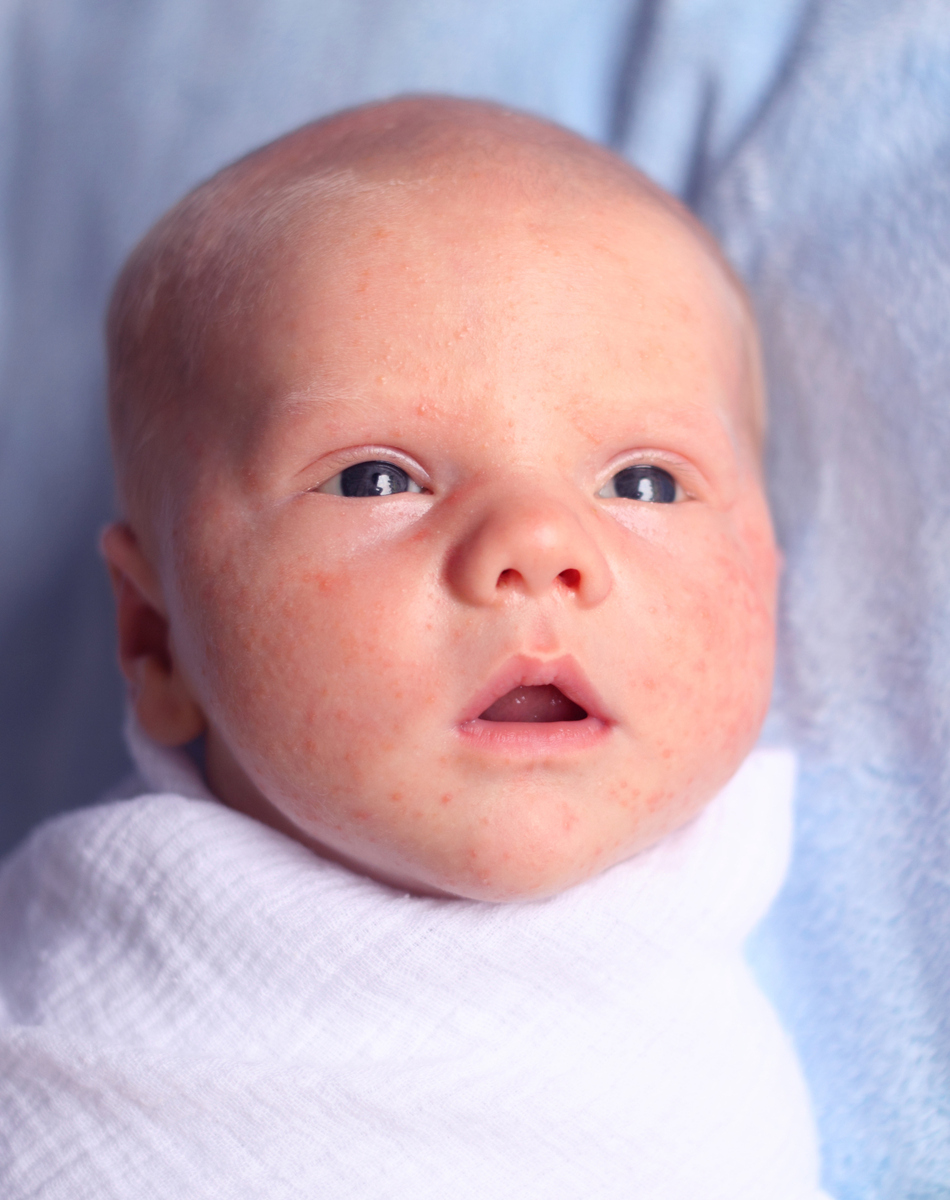
Episode Transcript
Interviewer: Newborn acne, is it something to worry about? What should you do about it? We'll find out next on The Scope.
Announcer: Health tips, medical news, research and more for a happier, healthier life. From University of Utah Health Sciences, this is The Scope.
Interviewer: Dr. Amy Williams is a pediatrician with University of Utah at the South Jordan Clinic. And a parent has a child and the child gets a rash. And I understand that's a call you get a lot.
Dr. Williams: Yes.
Interviewer: They tend . . . a little freaking out happens. So let's talk about when you should be concerned about that rash, and when it's probably not a big deal, and what to about it.
Dr. Williams: Yeah, great question. I think it's a really difficult thing sometimes to know what a rash is. And quite honestly, a lot of times, doctors have to get second opinions. Rashes can be sometimes very easy and sometimes they are just confusing. So the newborn, usually, they come out with a lot of rashes and I think that's something we can focus on because a lot of them are things that parents can do at home and they don't need to bring them in.
The rash that I most commonly get questions about is the newborn acne, and it usually start to show up a couple of weeks after they're born and they get something that looks very much like a teenager's acne: the white pimples and the red on the cheeks, on the forehead. Sometimes it's all over the neck. And parents get really concerned because it shows up and we . . . they don't know what to do.
A lot of times, this is all just related to the changes that are happening in the baby during that first couple of weeks: they came out of mom, they were exposed to mom's hormones and everything and they're having this changes in their body. And the acne shows up, but quite honestly, it's a very healthy, happy, non-urgent rash. And it's something that parents can do nothing about and just allow the baby to recover from it. It usually takes a couple of weeks, sometimes a couple of months.
Interviewer: And no harm done?
Dr. Williams: No harm.
Interviewer: No skin damage?
Dr. Williams: You don't have to start buying over the counter acne medicine.
Interviewer: It's a little early to start, right?
Dr. Williams: In fact, we encourage you not to do that for a baby. Their skin is so sensitive that they really can't handle any of the medication we do for teenagers or adults. It's very healthy rash and you don't have to do anything about it all, and it will go away on its own.
Interviewer: Are there ever any instances where it doesn't?
Dr. Williams: Sometimes they are so severe that we will have a dermatologist look at it and have an evaluation to see if there's any treatment. Obviously, if there are any signs that it's getting infected or the rash is changing, those are things I would definitely bring the in for. And you can always bring them in for a concerning rash and we can always talk to you about it. If it doesn't feel all right to you, bring your baby in.
Interviewer: Yeah. And you said this lasts for about two weeks, generally?
Dr. Williams: It lasts a couple of weeks to sometimes a couple of months. Sometimes, it lasts until they're four months old and then it resolves on its own. But it's not related to food, it's not related to anything else other than their body just changing.
Interviewer: So if the acne is kind of coming and going and a new one appears, and then disappears and the new appears that goes on for a couple of months, that's totally normal?
Dr. Williams: Totally normal. Don't pop them.
Interviewer: Okay. That more good advice. For the rest of your life, that's good advice, right?
Dr. Williams: Don't ever pop them. It is something that is natural and although maybe they won't look great in baby pictures, it is absolutely normal and fine. Please don't put makeup on the baby. Just let them be who they are, let them transition.
Announcer: Thescoperadio.com is University of Utah Health Sciences Radio. If you like what you heard, be sure to get our latest content by following us on Facebook. Just click on the Facebook icon at thescoperadio.com.